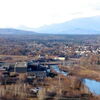Processing Your Payment
Please do not leave this page until complete. This can take a few moments.
- News
-
Editions
-
- Lists
-
Viewpoints
-
Our Events
-
Event Info
- Business Leaders of the Year Reception 2025
- Women's Leadership Forum 2025
- On the Road with Mainebiz in Bethel
- Health Care Forum 2025
- On The Road with Mainebiz in Greenville
- On The Road with Mainebiz in Waterville
- Small Business Forum 2025
- Outstanding Women in Business Reception 2025
- On The Road with Mainebiz in Bath
- 60 Ideas in 60 Minutes Portland 2025
- 40 Under 40 Awards Reception 2025
- On The Road with Mainebiz in Lewiston / Auburn
- 60 Ideas in 60 Minutes Bangor 2025
Award Honorees
- 2025 Business Leaders of the Year
- 2024 Women to Watch Honorees
- 2024 Business Leaders of the Year
- 2023 NextUp: 40 Under 40 Honorees
- 2023 Women to Watch Honorees
- 2023 Business Leaders of the Year
- 2022 NextUp: 40 Under 40 Honorees
- 2022 Women to Watch Honorees
- 2022 Business Leaders of the Year
-
-
Calendar
-
Biz Marketplace
- News
- Editions
- Lists
- Viewpoints
-
Our Events
Event Info
- View all Events
- Business Leaders of the Year Reception 2025
- Women's Leadership Forum 2025
- On the Road with Mainebiz in Bethel
- Health Care Forum 2025
- On The Road with Mainebiz in Greenville
- + More
- On The Road with Mainebiz in Waterville
- Small Business Forum 2025
- Outstanding Women in Business Reception 2025
- On The Road with Mainebiz in Bath
- 60 Ideas in 60 Minutes Portland 2025
- 40 Under 40 Awards Reception 2025
- On The Road with Mainebiz in Lewiston / Auburn
- 60 Ideas in 60 Minutes Bangor 2025
- - Less
Award Honorees
- 2025 Business Leaders of the Year
- 2024 Women to Watch Honorees
- 2024 Business Leaders of the Year
- 2023 NextUp: 40 Under 40 Honorees
- 2023 Women to Watch Honorees
- 2023 Business Leaders of the Year
- + More
- 2022 NextUp: 40 Under 40 Honorees
- 2022 Women to Watch Honorees
- 2022 Business Leaders of the Year
- Nomination Forms
- Calendar
- Biz Marketplace
Single no more | Driven by financial pressures and a commitment to mission, nonprofits join forces, erase borders
A variety of Maine nonprofits are taking new approaches to address community needs, and some believe these changes represent a radical shift in the role of organizations.
After 20-plus years of operating as separate land trusts, the boards of directors at Falmouth Land Trust, Chebeague and Cumberland Land Trust, and Oceanside Conservation Trust of Casco Bay signed a memorandum of understanding to form Portland North Land Trust Collaborative.
That was two years ago. The initial intent behind the collaborative was to streamline administration of fundraising and data management to assist with the national accreditation of the three organizations.
Now, the approach is having much broader ramifications affecting overall vision and conservation planning. Instead of stopping at town boundaries, the Portland North Land Trust Collaborative considers land conservation by ecosystem boundaries.
Because this approach makes so much economic and environmental sense, it is easy to forget that combining and shifting the administrative functions and programmatic vision of three organizations after two decades of development is a remarkably difficult task.
“Each land trust is so personality based,” says Jessica Burton, executive director of the collaborative. “There is no template. We are engaged in an experiment. The model we are creating will come out of each organization’s culture.”
Burton credits the commitment of board members who have devoted a tremendous amount of time to setting the vision and addressing fears related to collaboration. “We are all taking a chance at creating a new model for professionalization and land protection,” she says. “It is both exciting and crucial.”
Collaborative intelligence
Just as the Portland North Land Trust Collaborative was forming, the Maine Department of Health and Human Services Office of Child and Family Services called together representatives from schools, the correctional system, health care and child care around the state. The goal was to encourage public, private and nonprofit entities serving children with disabilities to assess their region’s needs and look for ways to keep children in their homes instead of in state-funded residences. Four regional collaborations developed from the initial statewide meeting.
“Twenty four/seven residential support is now financially unsustainable,” explains Jim Pierce, executive director of Independence Association, a Brunswick agency that runs 15 residences for children and adults with disabilities.
“It is the only way, given the economy, that we can create a structure that can continue to help people,” says Doug Patrick, a systems manager for DHHS’s Children’s Behavioral Health Services. Patrick, one of four staff people at DHHS assigned to forge an entirely new way of serving children statewide, says the Maine effort is unique: “There are pockets in other states, but our goals here are broader and more inclusive.”
Jeff Wahlstrom, principal at Starboard Leadership Consulting in Bangor, provides support to three of the regional collaborative efforts. “People are realizing that our old ways of delivering services don’t work. But shifting systems like this is slow-going,” says Wahlstrom. “We need to find ways to make investments in these collaborative networks to make them most effective.”
Currently, Maine Network Partners, the Institute for Civic Leadership, Common Good Ventures, the Maine Association of Nonprofits, the Maine Land Trust Network, the Maine Community Foundation and the Davis and Horizon foundations are funding and supporting what some call “networks for social change.”
Also in 2006, quite independently, the board of directors of the York County United Way, led by Executive Director Kathryn Davis, began to rethink its approach to charitable giving. “We were already focusing on the overall health of young children, and the financial stability of families. But we started to ask — in addition to its fiduciary responsibility, how could the board look at issues systemically? How could we be part of owning the solution to these problems, and grapple with issues that are bigger than one organization can solve?”
Since then, the board has been devoted to building support for key issues. “We wanted to share power and encourage creativity. There were always pockets of good things happening. As a funder, we are working on connecting the dots between efforts,” adds Davis.
Those collaborations and new ways of thinking are needed now more than ever.
“Who knows where the economy is heading, but there is always opportunity in bad times,” says Marion Kane, former president of Maine Community Foundation, who recently retired as president of the Barr Foundation in Boston. “Leaders should not focus on their organizations. Instead, they need to ask: What is my mission? What do I need to do to become mission, rather than organization, focused?”
Elizabeth Banwell is director of external affairs for the Maine Association of Nonprofits in Portland. She can be reached at editorial@mainebiz.biz.










Comments